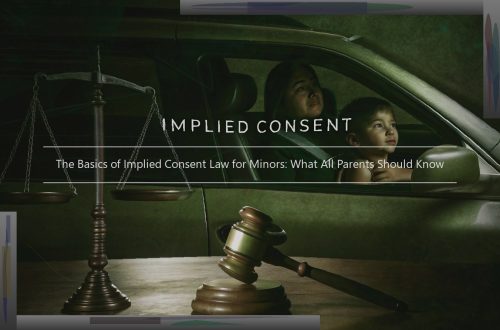
Health Insurance Disputes: Dealing with a Parent Withholding Insurance Information
Navigating health insurance can be a labyrinthine experience, especially when family dynamics complicate things. Have you ever faced a situation where a parent is withholding insurance information? It’s a frustrating dilemma that many people encounter, and it can significantly impact your ability to manage medical expenses and secure necessary treatments. In this article, we’ll explore the ins and outs of dealing with such disputes, offering practical advice and strategies to help you navigate this tricky terrain.
Understanding the Problem
Why Might a Parent Withhold Insurance Information?
The reasons for a parent withholding insurance information can be deeply rooted in personal or practical concerns. Personal disputes are a common factor, where ongoing family conflicts extend into areas like health insurance, creating a barrier to sharing crucial information. These disputes might stem from long-standing grievances or recent disagreements that affect the willingness to cooperate on practical matters. Additionally, financial concerns can play a role; parents might be anxious about the potential costs or financial responsibilities associated with sharing their insurance details, fearing that it could lead to unexpected expenses or misuse of the information. Lastly, control issues might be at play, where a parent prefers to retain control over how and when the insurance information is used, often due to a desire to manage the situation according to their own terms or concerns about how the information might be handled.
The Impact of Withheld Information
When insurance information is withheld, the consequences can be significant and multifaceted. Delayed medical care is a primary concern, as not having access to insurance details can hinder timely treatment, potentially exacerbating health conditions or delaying necessary procedures. This delay can lead to complications that could have been avoided with prompt access to medical services. Additionally, increased out-of-pocket costs can become a reality; without the insurance information, you might have to pay for treatments upfront, which can be financially burdensome and strain your personal budget. Lastly, emotional stress is another critical impact, as managing health issues while simultaneously dealing with family disputes over insurance information can create a compounded emotional toll, leading to frustration, anxiety, and added pressure in an already challenging situation.
Steps to Address the Issue
1. Open Communication
Open communication is crucial in resolving disputes about withheld insurance information. Follow these steps to ensure a productive conversation:
- Be Calm and Respectful: Approach the discussion with a composed and respectful attitude. Avoid placing blame or expressing frustration, as this can lead to defensiveness.
- Clarify Your Needs: Clearly explain why you need the insurance information and how having it will benefit you. For example, mention that access to the information is essential for scheduling medical appointments or managing health care costs.
- Listen Actively: Pay close attention to your parent’s perspective. Understand their concerns and see if there are underlying issues or reasons for withholding the information. This can help address their worries and facilitate a solution.
2. Document Everything
Documenting all interactions can be essential if the dispute escalates. Here’s how to keep thorough records:
- Keep a Log: Maintain a detailed log of every conversation related to the insurance information. Include dates, times, and the content of discussions to track the progression of the dispute.
- Save Correspondence: Retain all written communications, such as emails, texts, or letters, that pertain to the insurance information. This documentation can serve as evidence if needed.
- Record Medical Appointments: Note any medical appointments or treatments that were affected by not having the insurance information. This helps illustrate the practical impact of the dispute on your health care.
3. Seek Mediation
If direct communication does not resolve the issue, consider seeking mediation to help find a resolution:
- Family Mediation Services: Engage a mediator who specializes in family disputes. They can facilitate discussions between you and your parent, helping to identify common ground and negotiate a solution.
- Legal Counsel: For more complex issues, consult with a lawyer who specializes in family law or insurance disputes. Legal experts can provide guidance on your rights and potential actions you can take.
4. Understand Your Legal Rights
Being aware of your legal rights can help you navigate the situation more effectively:
- Health Insurance Portability: Understand your rights regarding access to insurance information if you are a dependent or covered under the policy. This can provide you with a basis for requesting the information.
- Privacy Laws: Familiarize yourself with privacy laws that govern the sharing and access of insurance information. This knowledge can inform you about the legal constraints and your entitlements.
5. Explore Alternative Solutions
If the issue remains unresolved, explore alternative solutions to manage your health care needs:
- Seek Assistance from Social Services: Contact social service organizations that may offer support with accessing health care and navigating insurance issues. They can provide resources and guidance tailored to your situation.
- Explore Other Insurance Options: Research public health insurance programs or financial assistance options that might be available. This can provide temporary relief and ensure you have access to necessary medical care while resolving the dispute.
Key Steps to Resolve Insurance Disputes
| Step | Action | Purpose |
| Open Communication | Discuss the issue calmly with the parent. | To resolve misunderstandings and find a solution. |
| Document Everything | Keep a detailed record of all interactions. | To have evidence in case of escalation. |
| Seek Mediation | Involve a neutral third party if necessary. | To facilitate resolution through a mediator. |
| Understand Your Rights | Research your legal rights regarding insurance. | To know what you’re entitled to and how to assert it. |
| Explore Alternatives | Look into other insurance options or assistance. | To find other ways to manage health care costs. |
Navigating Insurance Disputes with a Parent
Communication Tactics
Effective communication is a cornerstone in resolving disputes, especially with a parent withholding insurance information. Start by employing “I” statements to express your feelings and concerns. For instance, saying “I feel anxious when I don’t have access to the insurance information” focuses on your emotional experience rather than accusing or blaming the other person. This approach minimizes defensiveness and encourages a more productive dialogue. It’s about communicating your needs and feelings clearly without assigning fault, which can help in reaching a mutual understanding.
Equally important is to stay focused on the issue at hand. During discussions, it’s easy for conversations to veer off into unrelated family matters or past grievances. To avoid this, steer the conversation back to the core issue of the insurance dispute whenever it starts to stray. Keeping the dialogue focused helps in addressing the problem directly and reduces the risk of escalating the situation. Additionally, make an effort to find common ground by emphasizing shared goals, such as ensuring everyone’s health and well-being. Highlighting mutual interests can foster a cooperative attitude and make it easier to work towards a solution.
Legal Considerations
Understanding the Health Insurance Portability and Accountability Act (HIPAA) can provide clarity in navigating insurance disputes. HIPAA is designed to protect patient privacy but also outlines specific guidelines regarding access to insurance information. Knowing your rights under this law can help you understand how to legally obtain or share insurance details and what limitations may exist. This knowledge can be instrumental in discussions with your parent and in ensuring you are compliant with legal standards while seeking the necessary information.
Additionally, family law may offer avenues for resolving disputes related to insurance, especially if the matter escalates. Family law can provide legal mechanisms to address issues such as access to insurance information, particularly if you are a dependent or covered under a parent’s policy. Consulting with a lawyer who specializes in family law can provide insight into how legal frameworks can support your case and what steps you might take if direct communication fails to resolve the dispute.
Emotional Management
Dealing with disputes involving family can be particularly taxing on your emotional well-being. Seeking support from friends, counselors, or support groups can provide a valuable outlet for your feelings. Talking to someone outside of the situation can offer a fresh perspective and emotional relief. Support networks can also provide practical advice and encouragement, helping you manage stress and maintain resilience throughout the dispute.
In addition to seeking support, practicing self-care is essential for maintaining your mental health. Engaging in activities that help you relax and unwind, such as exercise, hobbies, or meditation, can be beneficial. Setting aside time for yourself helps in managing stress and avoiding burnout. Furthermore, setting boundaries is crucial in preserving your mental health. Recognize when the situation becomes too overwhelming and allow yourself to step back if needed. Establishing clear boundaries can prevent emotional exhaustion and help you approach the dispute with a clearer and more balanced mindset.




